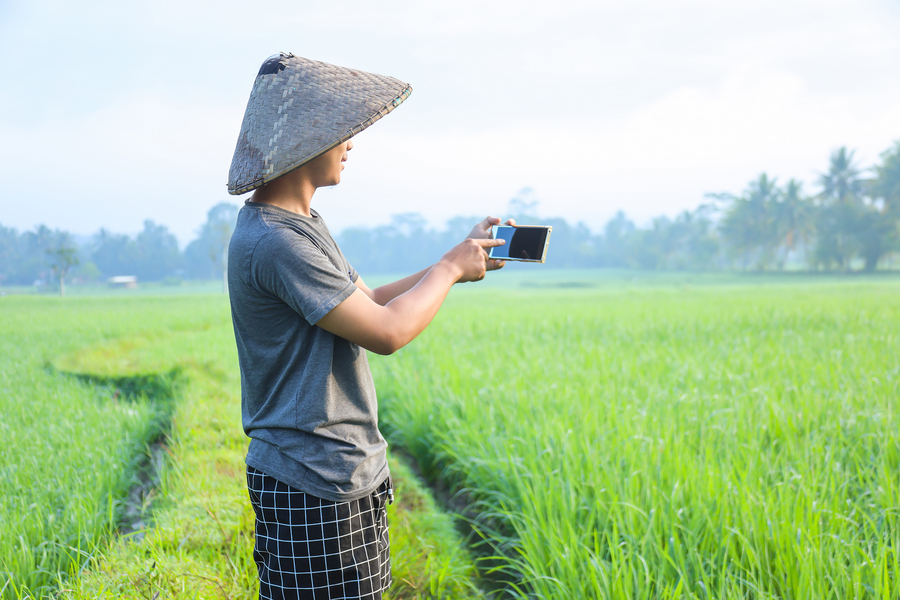22 August 2022
IoT in the Agriculture Industry Smart Farming
The Internet of Things (IoT) involvement in agriculture could be one of the best life-changing activities in the world. In most areas, harsh weather changes, low-quality soils, and other tricky conditions make agriculture bear losses.
But the developing use of IoT and its tools in farming will create more profits in the future. So here, we'll look at the meaning of IoT agriculture, its benefits, use cases, and IoT devices in agriculture.
What is IoT Agriculture?
In the agricultural sector, IoT entails using smart devices, sensors, and technology to manage every farming activity. The processes include planting, harvesting, and selling farm products. Through this technology, people in the agricultural sector gain many ideas that help their activities flourish.
Benefits of IoT in Agriculture
The involvement of IoT in agriculture has many chances to transform the agricultural sector. Below are the great benefits that IoT will bring to your farming activities.
1. Promotes Efficient farming
Most farmers now grow their crops in poor soils, with reduced land size and poor weather conditions. But through IoT agriculture, farmers can study various weather patterns and soil conditions. It assists in making wise agricultural decisions.
2. Improves Farm Agility
The real-time prediction technology helps farmers be flexible in farming. So, people can adjust to changes in weather, crop health, and soil conditions. Farmers can save more crops from possible losses.
3. Promotes more Expansion
As the human population keeps increasing, the pressure is on the agricultural sector to produce more. Through the IoT in agriculture, like automated greenhouses, farmers can produce foods every season. Also, the technology allows farmers and companies to grow food anywhere as long it's comfortable for the people around the farm.
Use Cases of IoT in Agriculture
Here are some of the great use cases to expect from IoT agriculture. They’ll help you understand more about how farmers can utilize IoT.
1. Data Collection
Through IoT agriculture, you'll have sensors to monitor your farming environment and activities. Some of the events to collect data are soil, crop growth, and livestock health. Such information makes you understand more about the growth of your farm.
2. Proper Cost Management
The data you'll collect from your farming activities helps manage your farm well. Here, the sensors will help you know the cost of every farm input. You'll reduce the unnecessary farming costs and save more.
3. Lower Risk Factors
Since data collection helps you protect the input you need, this aspect also helps you know what to expect as your output. For example, as a farming company, if you know about the expected date of harvest, it will help you plan on your next date of planting. In the end, you'll experience rare cases of losses.
4. Reduced Costs
Today, most IoT agricultural plans focus more on using natural resources like water to get the best products. Through the devices and sensors, agricultural companies now can know the number of resources to allocate to various plants or animals.
5. Improves Product Quality
IoT in smart agriculture is the best way to reduce the use of pesticides and fertilizers. Farmers' joy is producing more quality and safer farm products. The technology makes the world greener and reduces the use of farm chemicals.
Examples of IoT Devices for Agriculture
Various advanced devices help make agriculture a sweet activity. Read on to find out how the best technology devices help farmers.
1. Drones
The use of drones on farms helps in aerial farm monitoring and delivery. You can use these devices to plant seeds for your agricultural company, especially in defrosted places. It means you'll save on more labor costs and plant more.
2. AG Smart Vehicles
Ag vehicles are one of the core tools that aid in amazing agriculture. Ag vehicles improve farming efficiency and promote more automation. These cars have sensors, wonderful GPS machines, and proper computer vision. Expect the features to make your farming activities easier and more productive.
3. Soil Sensors
Soil sensors work great on a farm where crops are growing. The tool helps you know your soil's specific temperature and other key data that affects your crops' health. It helps you plan how to work on your crops as you monitor their growth cycle.
4. Irrigation Sensors
These smart sensors help control how your farm sprinklers work. The devices check on your soil's dryness and release the water in the right amounts. So, your plants will have enough water, and you'll save more.
5. Cattle Monitoring
Like crop monitoring, IoT helps farmers manage their animals using animal sensors. So, monitoring the animal's health, input, and output costs become easy. Also, IoT comes to solve the issue of wandering farm animals.
Every IoT application in agriculture makes it possible for agricultural companies to collect important data. Farmers must embrace the use of IoT and its devices to increase farm productivity. Also, the technology helps farmers prepare for different unexpected environmental times in agriculture. Your company can use the IoT agriculture to boost farming activities or even provide solutions to your farmer clients.
Is this information helpful?
